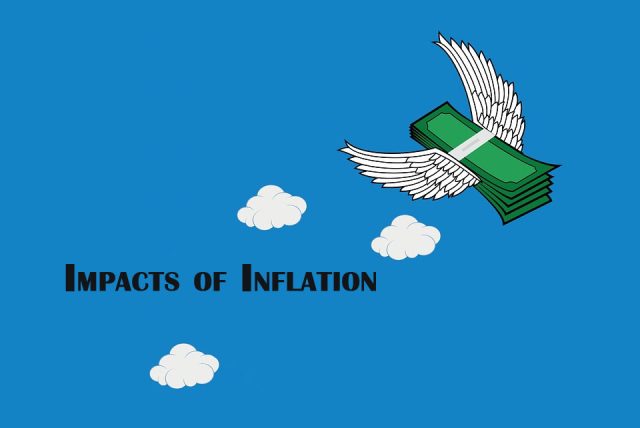
The factor that is quite influential and cannot be avoided on the value of money is inflation. Inflation should be taken into account when making financial planning, including household financial planning.
Inflation causes the price of consumer goods and services to increase so that the expenditure budget will also increase. An increase in the spending budget can reduce the regular budget for saving and has the potential to disrupt future financial plans. Without taking into account inflation, family financial planning may not achieve the goals that have been previously set.
What Is Inflation?
According to some sources, inflation defined as an increase in the price of goods and services in general and continuously over a certain period. The calculations are carried out by the Central Bureau of Statistics for seven expenditure groups, namely food, processed food/beverages/tobacco, housing, clothing, health, education and sports, and transportation and communication. This grouping data was obtained through the Cost of Living Survey.
There are several causes of inflation, namely;
The increase in supply or cost-push inflation that occurred due to the depreciation of the exchange rate, increase in production costs, the impact of inflation in other countries, especially trading partners, increases in commodity prices regulated by the government or administered prices, and a sudden decrease in supply.
Increased demand or demand-pull inflation occurs because total demand exceeds the capacity of the economy, for example by hoarding certain goods. There is a combination in increasing demand and supply.
Expected inflation is when people anticipate future changes and try to adapt, for example, an increase in the price of goods before the holidays even though the stock is sufficient. Increase of the amount of money in circulation. When the amount of money is greater without any change in the number of goods, the value of money will decrease and the price of goods will increase.
If the inflation is higher, then the price of goods is also higher and services in the market, so consumers’ purchasing power weakens.
Dealing with the Impact of Inflation
The impact of inflation that is most felt is the increase in the price of necessities. Spending plans can swell especially with rising food and fuel prices. That way, the thing that must be done immediately is to review the household budget plans, and whether they are still relevant to the current conditions.
Adjustments also need to be made in leisure posts such as hanging out in restaurants or coffee shops, watching movies, or traveling. So that budget savings can be reduced in cost or insensitivity without the need to eliminate the post.
To minimize the impact of inflation, you can do the following things;
1. Start saving
Record the expenditure and determine which budget can be reduced because it is not a priority. Slightly overstate the spending plan figure to accommodate possible future price increases. For those of you who already have an insurance need to re-evaluate the policy. If the current policy exceeds your needs, contact your agent to change the type of protection to better suit your needs. Most importantly, always measure your financial condition and adjust your lifestyle.
2. Increase financial understanding
Learning finance doesn’t have to go through formal schools or courses, now there is a lot of material spread on social media that you should study to help you manage household finances. Keeping up with the development of the national inflation rate or understanding how to invest healthily, is quite important for managing a household. Basic education in finance can protect you from the risks of unpredictable economic changes.
3. Create a backup plan
If the frugal option isn’t suitable for your sustainable plan, it’s time to make another plan, for example by looking for additional income by opening a business or looking for a new job with a higher income. You can also delay purchasing assets that have a high value.
4. Invest
Instead of saving the same as putting away money with monthly discount charges, investing in stocks and bonds can pay off more in the long term. Those of you who are still beginners can start with low-risk investments such as mutual funds. Deposits are also an attractive option because the interest is higher than savings. Also, reserve an emergency fund for urgent needs that come suddenly.
5. Using Insurance
Many think that insurance can prevent risks, even though insurance is protection from the financial impact when a risk occurs. When a risk occurs, insurance guarantees that you will be exposed to the minimum financial impact and can still move on afterward. Having protection will help you when an emergency occurs, especially when there is inflation.
Inflation is not always predictable, so you need to be prepared to deal with it. When planning your finances, remember that the future is full of uncertainty and inflation. Therefore, preparing a mature financial plan is a good decision for the future.
